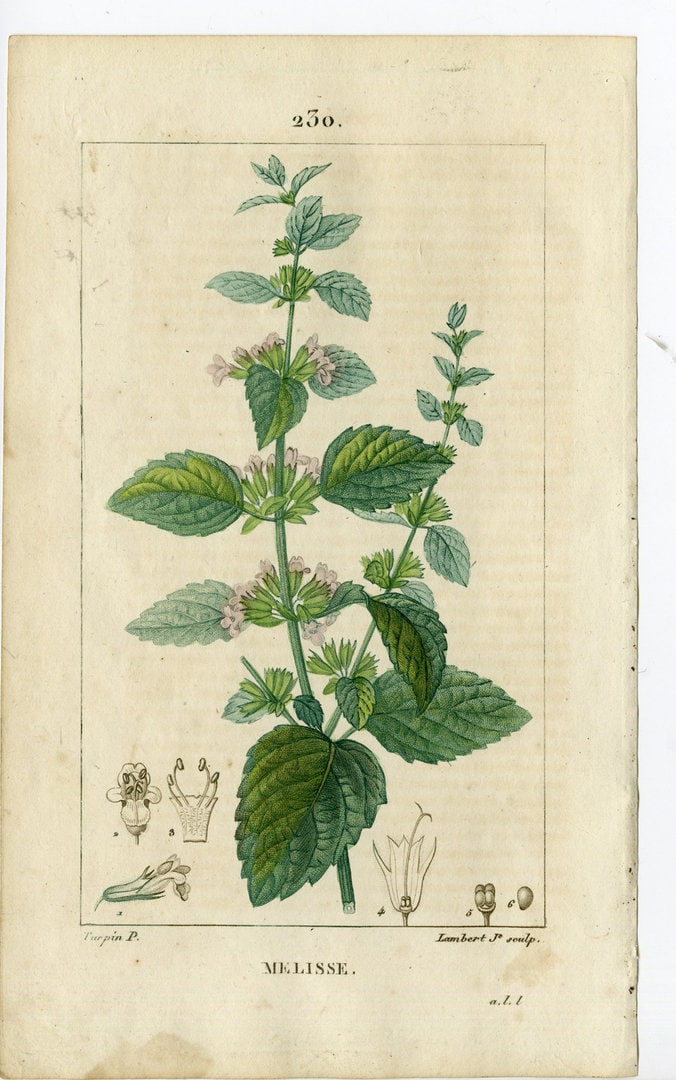Lightbringers: Herbs for Brightening Dark Winter Days
Original article from Evolutionary Herbalism.
The winter solstice marks the shortest day of the year in the northern hemisphere. Once it passes, the days grow brighter and longer. However, the long winter nights can still weigh heavy on the hearts of many.
By using herbs that uplift the heart and soothe the mind, you can diffuse a bit more sunshine into even the darkest of days.
In today’s blog post, you’ll learn:
- A variety of herbs that can help you feel energetically, mentally, and emotionally lighter throughout the dark winter months
- A recipe for you to make your own uplifting winter formula
- Ways to use the dark months ahead to cultivate intention
Natural Order of Nature
Today, December 21st, marks the shortest day of the year here in the northern hemisphere, a time where many people throughout time have celebrated the Winter Solstice. The etymology of the word means sol (“sun”) and sistere (“to stand still”) and is a reflection of a turning point the sun is now making in the southernmost part of the sky from the Earth’s equator. Moving forward from this day, we’ll see that the days start to grow a little longer and a little brighter.
For any northern dwellers, it’s common to feel a little less energetic as these darker days envelop the skies. Because the daylight is so minimal and we’re not exposed to the long hours of sunlight we’re used to, our biological system can produce an overproduction of a hormone that promotes rest, sleepiness, and more of a calmed state—called melatonin.
Melatonin is a part of our body’s inherent natural clock or circadian rhythm, which governs our sleep patterns; however, it can sometimes feel a bit overbearing and can leave us feeling a little heavier, dull, and for some folks, even manifest as the winter blues or Seasonal Affective Disorder (SAD).
An important consideration here is that it’s perfectly normal to feel a bit melancholic during this time of year, and to remember that the rhythms of Nature can have a mirror effect on our inner emotional worlds. So if you are feeling a little more inward, anti-social, tired or just want to cocoon, then give yourself the permission to lean into that, to take rest and allow yourself more down time.
I think it’s important for us to remember that life for the majority of us has changed and is now drastically different from the one we lived over a 100 years ago. With the bustle of life (and the holidays) it’s easy to forget that life only a century ago, when the seasons changed, so did our lives and our daily activities. When the sun went down, we stopped—there was simply no light to work by. We spent more time at home with family, cooked meals on the fire, played indoor games with each other, and spent a lot of time hibernating with books by candlelight. The winter season was a time that forced us to really slow down, dream close to the warm fire, and set intentions for the following year.
So let’s remind ourselves that this time is meant for introspection, nourishment and hibernation, and where some of us may experience heavier bouts of depression, that this is a time to be gentle with ourselves, and we don’t necessarily have to be productive all the time, or to pack in that schedule just because you have the slot. Take time to rest if you feel a bit down or fatigued, because we are simply a part of the natural order of Nature and its rhythms, and it’s normal to be feeling this.
And if these long winter days have kindled a slight darkness in your world, and it does feel a little too heavy to carry, these are a few of my favorite herbs that have lifted my spirits and fostered joy, when life just feels a bit too difficult. I hope this aids you, a loved one or a friend, and ignites a little spark of energy into your body, so you can still perhaps feel a little lighter and brighter during this time—while you sip some warm cocoa and read an inspiring tale.
A Few Favorite Plants
Gotu Kola (Centella asiatica)
This is a cooling, bitter1 remedy that has a long history in Ayurveda and Chinese medicine and is native to parts of southeast Asia, India, Sri Lanka, South Africa, and north and South America. This plant has been used for a long time in Asia for mental clarity, and personally feels like it invokes a sense of mental sharpness coupled with a feeling of calm and stillness. This is a balancing tonic that brings stimulation to the brain through cerebral circulation, which helps to lift those foggy mental states and help you think more clearly. It’s used to increase memory and is especially great for folks that feel agitated, as it also relaxes the nervous system.² I personally, really love Gotu Kola for meditation and self-reflection, for it induces a state of calm and peaceful wakefulness.

Lemon Balm (Melissa officinalis)
I’m just going to share a quote that Sajah wrote about Lemon as I think it depicts this plant beautifully:
“Like a sunny day, Lemon Balm uplifts the spirit, bringing hope and happiness into the heart. It is a perfect remedy to have around in the depths of the winter blues, in those times when the sun hasn’t reached your soul for ages, when darkness and despair have clouded your days. Lemon Balm invokes the light within, revealing the innocence and sweetness of the inner child. Many of us don’t allow ourselves to shine in our full capacity, we hold ourselves back and simply don’t accept or love who we are in this moment…
Lemon Balm assists us in looking beyond our flaws and conditionings to seeing the pure soul inside, the one that wants to be free and exuberant, the part of us that wants to have fun! This acceptance of the self opens the floodgates of love to pour into those forgotten or malnourished places within the soul. The incredible purity and simplicity of this plant instill a sense of peace and contentment within, inviting one to enjoy the nectar of their own heart.“
Linden (Tilia spp.)
This is a tree that bears heart-shaped leaves, that of which the doctrine of signatures (the morphology of a plant resembling various parts of the body that the plant is used for) is abundantly clear. This plant has a mild, sweet taste and helps to release tension in the musculature and circulatory realms of the body, specifically the heart, where it softens tension and uplifts worry. Linden flowers alleviate restlessness, improve sleep, and lower anxious and depressed states. It’s specifically indicated for anxiety culminating in the heart as it physically supports the vasculature and circulatory system, gently widening blood vessels while lowering blood pressure. ³ With its sweet and aromatic blossoms, Linden reinstates a sense of calm and gladdens the heart.
Mimosa (Albizia julibrissin)
This beautiful tree is from China and is known for its predominant uplifting qualities, which is why it’s referred to as the “collective happiness tree”. It has a bit of an astringent and has a somewhat acrid flavor.⁴ If you ever get a chance to see an Albizia tree flowering, you can’t help but feel happy in the presence of Mimosa flowers. The blossoms shine pink and dangle like bright fireworks exploding mid-air—they are simply fantastic and without a doubt, very happy forming creatures. This flower offers relief for those moments when you feel burdened by continuous tears that wear down your heart. It allows you to take a breath and feel peace roll into your heart. In Traditional Chinese Medicine, this herb is considered a “Shen tonic” and is used to uplift the spirit and awaken a sense of happiness.⁵ Its actions are often felt quickly; so if you’re needing a strong pick-me-up, Mimosa might do the trick.
Rosemary (Rosmarinus officinalis)
This culinary favorite has been used all over the world to introduce a warming aromatic flavor into food as well as the home, especially during the dark winter months. Rosemary has an aromatic and pungent taste, which helps to improve mood and encourages circulation to the brain, clearing out brain fog and improving mental clarity. Having Rosemary around during this time of year can help uplift the heart and soothe the spirit— a rosemary tea is really buttery and delicious, otherwise be sure to cook with it at the very least!
Rhodiola (Rhodiola Rosea)
Used in Eastern Europe and Asian countries as a stimulating adaptogen, this wonderful bitter tasting herb when taken in smaller doses, will stimulate energy, lift depression, enhance work performance, eliminate fatigue and elevate wakefulness and steady energy throughout the day.⁶ This is because it stimulates the production of norepinephrine, dopamine, and serotonin, all of which are neurotransmitters involved in the functioning of your circadian rhythm.⁷ I’ve recently quit drinking coffee, and Rhodelia has been my go to herb in the mornings when I’m feeling like I need a little bit more of a pick me up. It makes my body feel energized and my mind feel clear and awake.
Siberian ginseng (Eleutherococcus senticosus)
Used in Traditional Chinese medicine, dating back more than 4000 years, it has long been believed that the regular use of Siberian ginseng increases longevity, improves general health and appetite, and restores memory.⁸ For someone who’s been stressed or depressed and fatigued for a long time, this adaptogenic herb helps to increase mental alertness, physical endurance, and reduce the effects of long term exhaustion. Similar to Rhodiola, it can be pretty dose-specific. While lower doses over the long term can assist in building and rejuvenating the neuroendocrine system, higher doses can be overtly stimulating and cause one to overextend themselves and burn out even more. I find that taking small to moderate doses provides great results, especially when taken twice a day (morning and afternoon) since this works in conjunction with the body’s natural cortisol cycles.
St. John’s Wort (Hypericum perforatum) *
Classically known as “sunshine in a bottle,” St. John’s Wort is a nerve trophorestorative, which means that it works to tone and restore a nervous system that is weakened from long periods of stress, nervousness, tension, anxiety, or insomnia.⁹ This herb is commonly known to provide relief for those experiencing Seasonal affective disorder or mild to moderate depression. Unlike Mimosa, this herb does not provide instant results. When working with St. John’s Wort, be patient and allow this gem a few weeks to take action. If you know that you are susceptible to the winter blues, consider using this remedy preventatively by taking it at the beginning of the cooler months to ease feelings of anxiety, tension, and depression.
❊ ❊ ❊
So, the herbs that I’ve suggested are mere guidelines for you to start out with if you, a friend or a loved one are feeling down. I haven’t given a full description of what each herb does (they all do a lot more!), so please take some extra time and care to do some further research to make sure that what you choose is actually suitable for the person you’re thinking of, and if you don’t know, reach out to an herbalist who does, as not every plant is suitable for everyone, especially if someone is taking medications.
In conjunction with these herbs, I encourage a little outside time every day if it’s possible or implement some form of movement, breathwork, or exercise. Personally, in winter, I try to get myself outside around noon and walk for about 30 – 45 mins daily, even in the torrential downpour (otherwise, I’d never get outside!) because when I push my butt outside that door—I always come home feeling a little more refreshed and energized.
*Please note: It’s important to consult your doctor if you are taking pharmaceutical drugs before you consume any herbs as there are many herb-drug interactions—please consult your health care practitioner or local herbalist to see what herbs are suitable for you.
An Uplifting Formula
Below is a blend that may be formulated as a tea or compounded as a tincture. This formula is designed to bring energy up into the mind and stimulate circulation in the brain, providing both the body and mind a little boost when feeling low. This formula should also lift and calm the heart from feelings of grief or depression, pushing the heaviness out and elevating mood. If you decide to make a tea—I would add the Eleuthero root first and let it simmer on low for 20-30 mins, then turn off the stove and add the Linden flowers, Lemon Balm, Holy Basil, and Rose before leaving it to steep with the lid for another 15-20 minutes. Once complete, strain your blend, add honey, and enjoy.
Uplifting Spirits Formula:
25% Linden flowers (Tilia spp.)
25% Lemon balm (Melissa officinalis)
25% Holy basil (Ocimum tenuiflorum)
15% Siberian ginseng (Eleutherococcus senticosus)
10% Rose petals (Rosa spp.)
Intention Setting
In conclusion, I encourage you to find yourself a cozy spot to rest—light a few candles, turn off the lights, shut your screen off, sip a hot drink, and just rest or read—and if you’re really sinking in and embracing this time, reflect on the year past and think about what has served you and what has not, what you want to bring forward into 2024 and what you want to let go.
Maybe even write this down in a journal. Creating and solidifying these intentions will plant seeds for the coming year, which will ultimately give you a life that is more fulfilling and connected to your own innate dream and purpose.
So here’s to embracing the dark time that surrounds outside, so that we all can receive the rest and recuperation we need for the coming year ahead.
Wishing you a warm winter solstice, holiday season and may the plants shine a little light into your life!
Warmly,
Elisha
Elisha grew up on a small island in the traditional territory of the Coast Salish peoples of the Sḵwx̱wú7mesh (Squamish) Nation in the Pacific Northwest. She has been working with us now for 8 years and has been following this herbal path for 15 years. She’s grown her herbal reservoir from various herbalists, including all of our programs, as well as apprenticed with us personally in our spagyrics laboratory. She’s apprenticed with various herbalists from around North America including Betty Norton, Jasmyn Clift/Kevin Kunslzer from the Wild Seed School of Herbal Studies, Chanchal Cabrera, Vermont herbalists Guido Mase/Larken Bunse and Betsy Bancroft from the Vermont Centre of Integrative Herbalism, and lastly with Todd Caldecott from The Dogwood School of Botanical Medicine.
She works as our operations manager here, running the Evolutionary Herbalism ship & our wonderful crew, along with a small practice & herbal apothecary. Her passions lie in wildcrafting plants that grow in her surrounding ecosystem and making her own herbal medicines. Her goal is to convey how nature’s medicine can be implemented into a holistic lifestyle empowering people to take better care of themselves and provide support to those who feel helpless.
References:
1 Gotu Kola Monograph — HerbRally. (n.d.). HerbRally. https://www.herbrally.com/monographs/gotu-kola
² Kant, R., Srivastav, P. P. and Datta, A. K. (2019) “The Medicinal Role of Centella asiatica and Its Applications in the Dahi: A Research Review”, Journal of Pharmaceutical Research International, 28(6), pp. 1–9. doi: 10.9734/jpri/2019/v28i630220
³ Health Benefits of Linden Tea. (2020, December 9). WebMD. https://www.webmd.com/diet/health-benefits-linden-tea
⁴ https://vtherbcenter.org/. (2011). Guido Mase. Retrieved December 19, 2023, from https://vtherbcenter.org/wp-content/uploads/2012/04/Joyful-herbs-for-darker-days.pdf
⁵ Tierra, M. (2018, May 17). Albizia: The Tree of Happiness. Retrieved October 20, 2019, from https://planetherbs.com/research-center/specific-herbs-articles/albizia-the-tree-of-happiness/.
⁶ Rhodiola rosea: a possible plant adaptogen. (2001, June 1). PubMed. https://pubmed.ncbi.nlm.nih.gov/11410073/
⁷ Sharma, A., Modi, A., & Kumar, N. (2022, January 1). The role of plant tissue culture in pharmaceuticals and secondary metabolites production. Elsevier eBooks. https://doi.org/10.1016/b978-0-323-90795-8.00021-7
⁸ Murray, M. T. (2020, January 1). Eleutherococcus senticosus (Siberian Ginseng). Elsevier eBooks. https://doi.org/10.1016/b978-0-323-43044-9.00076-5
⁹ Doukani, K., Selles, A. S. M., & Bouhenni, H. (2021, January 1). Hypericin and pseudohypericin. Elsevier eBooks. https://doi.org/10.1016/b978-0-12-819212-2.00013-x



